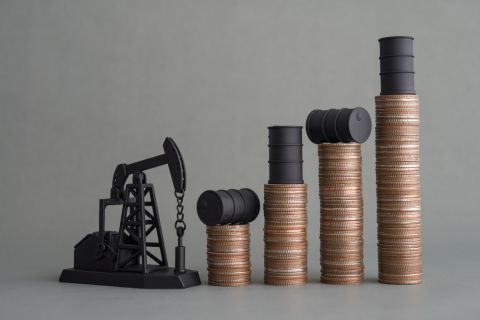The Biden administration on July 14 said it would pour $56 million into programs aimed at spurring domestic manufacturing of solar energy products as the U.S. seeks to move its clean energy sector away from a dependence on Chinese-made goods.
The new funding from the Department of Energy (DOE) will support technologies that are alternatives to the silicon-based products that dominate the market and are primarily made in Asia.
The announcement comes a week after the International Energy Agency said nations must expand their own solar production to secure the supplies needed to meet climate change goals. Some 90% of U.S. solar panels are made overseas.
That reliance has wreaked havoc on the U.S. solar industry at a time when U.S. President Joe Biden has set an ambitious goal to wean the nation’s power sector off of fossil fuels by 2035. In the last two years, big solar projects have faced delays due to pandemic-related supply chain disruptions, import tariff threats and increased border scrutiny stemming from concerns about ties to forced labor in China’s Xinjiang region.
“It’s necessary that we take the steps to ensure that we can be as self-sufficient as possible,” Garrett Nilsen, acting director for DOE’s Solar Energy Technologies Office, said in an interview. “Not only for hitting decarbonization goals, but also just to make sure that we are as insulated as possible from any other global trade disruptions that might take place.”
In a statement, DOE said it would put $27 million toward boosting production of solar panels made from cadmium telluride. That technology does not rely on solar-grade polysilicon, a raw material primarily made in China.
The U.S. is already a major producer of cadmium telluride panels thanks to First Solar Inc.’s Ohio facility.
An additional $29 million will go towards supporting work on panel designs that reduce manufacturing costs and developing the production of solar cells made form perovskites, a promising cheap alternative to silicon. That funding includes $10 million for projects to increase reuse and recycling of solar products.
In another show of support for solar energy, the administration also announced its approval to build the 125-mile (200 km) Ten West Link transmission line between Tonopah, Arizona and Blythe, California. The line is intended to support future development of solar energy projects in the Southwest.
Recommended Reading
Texas LNG Export Plant Signs Additional Offtake Deal With EQT
2024-04-23 - Glenfarne Group LLC's proposed Texas LNG export plant in Brownsville has signed an additional tolling agreement with EQT Corp. to provide natural gas liquefaction services of an additional 1.5 mtpa over 20 years.
US Refiners to Face Tighter Heavy Spreads this Summer TPH
2024-04-22 - Tudor, Pickering, Holt and Co. (TPH) expects fairly tight heavy crude discounts in the U.S. this summer and beyond owing to lower imports of Canadian, Mexican and Venezuelan crudes.
What's Affecting Oil Prices This Week? (April 22, 2024)
2024-04-22 - Stratas Advisors predict that despite geopolitical tensions, the oil supply will not be disrupted, even with the U.S. House of Representatives inserting sanctions on Iran’s oil exports.
Association: Monthly Texas Upstream Jobs Show Most Growth in Decade
2024-04-22 - Since the COVID-19 pandemic, the oil and gas industry has added 39,500 upstream jobs in Texas, with take home pay averaging $124,000 in 2023.
What's Affecting Oil Prices This Week? (Feb. 5, 2024)
2024-02-05 - Stratas Advisors says the U.S.’ response (so far) to the recent attack on U.S. troops has been measured without direct confrontation of Iran, which reduces the possibility of oil flows being disrupted.




